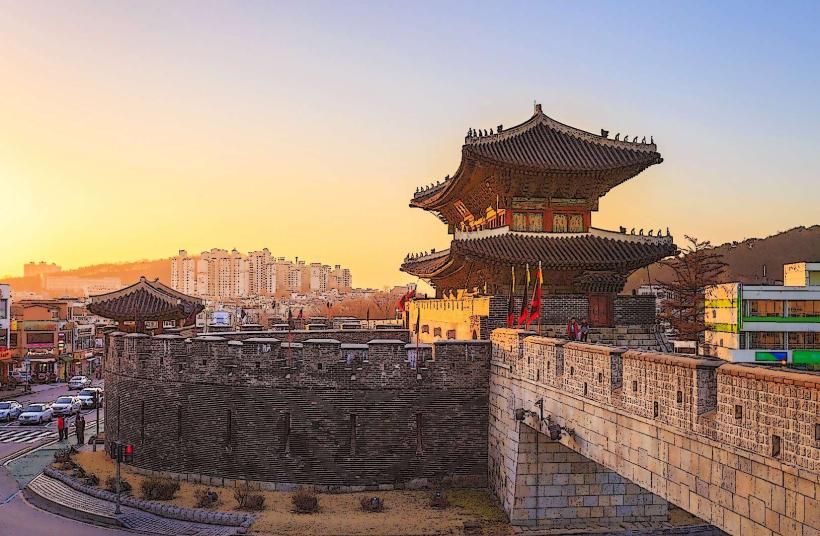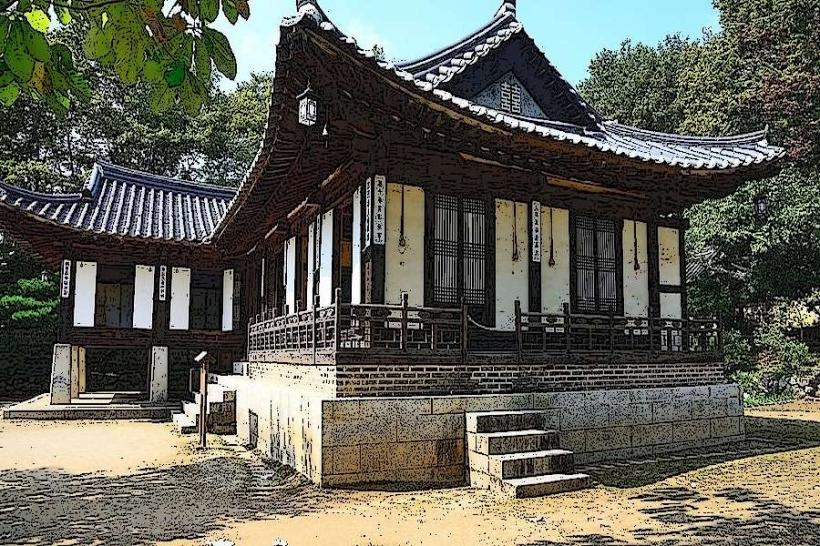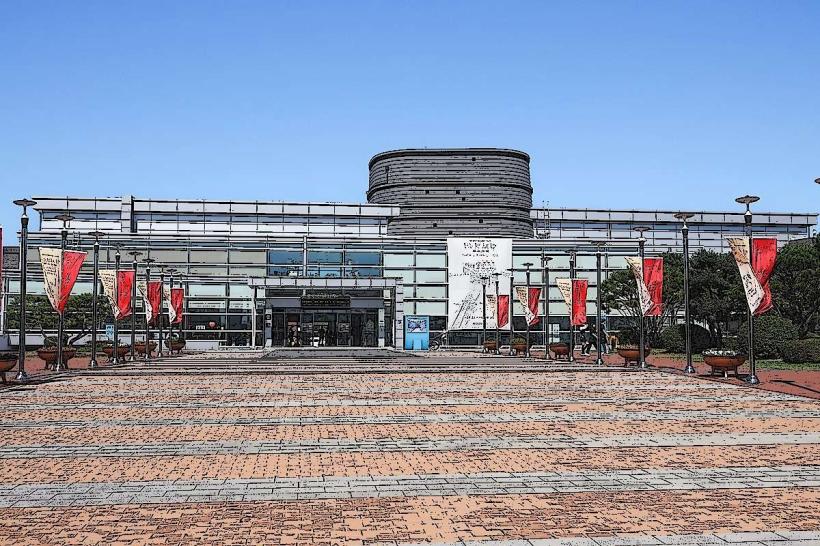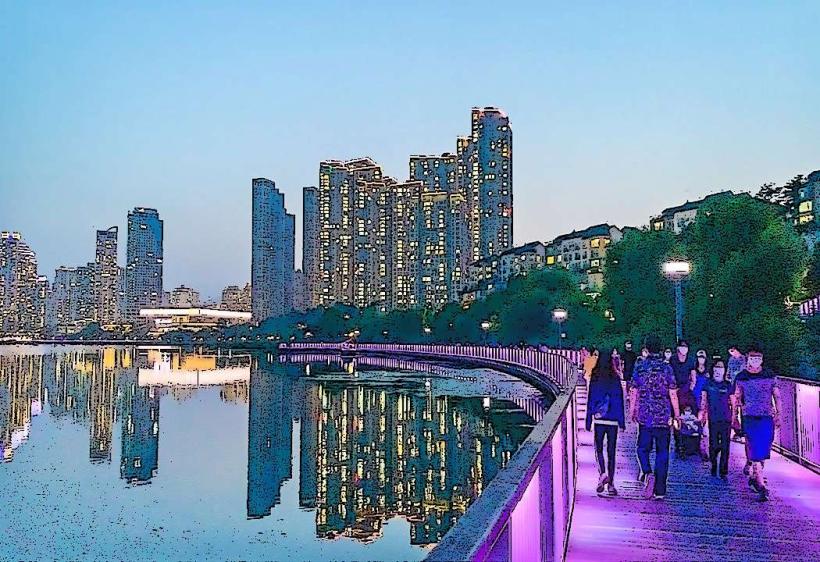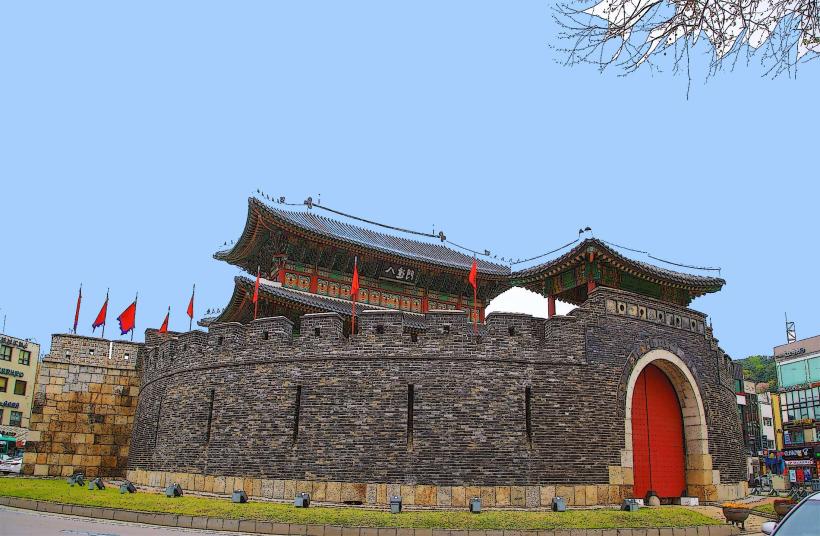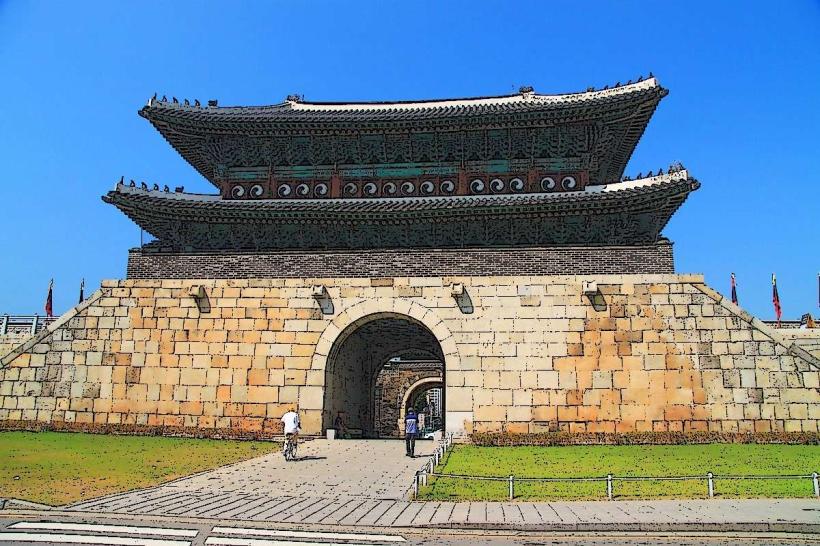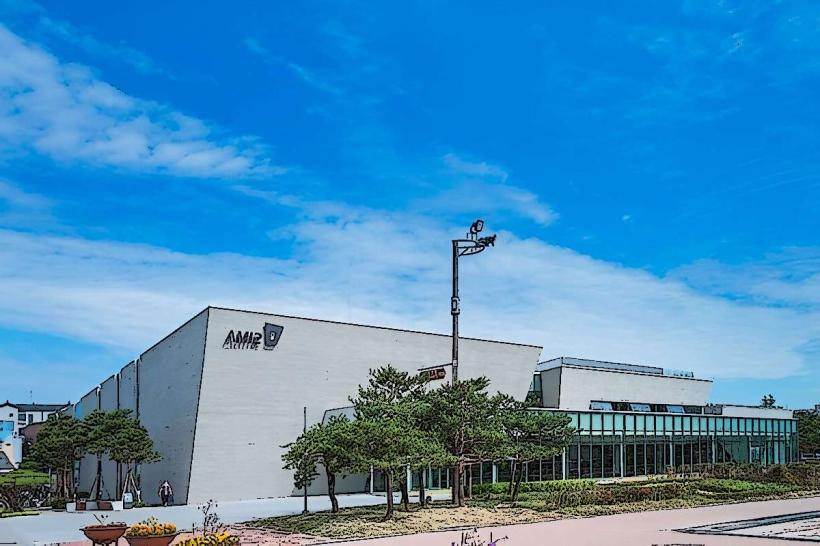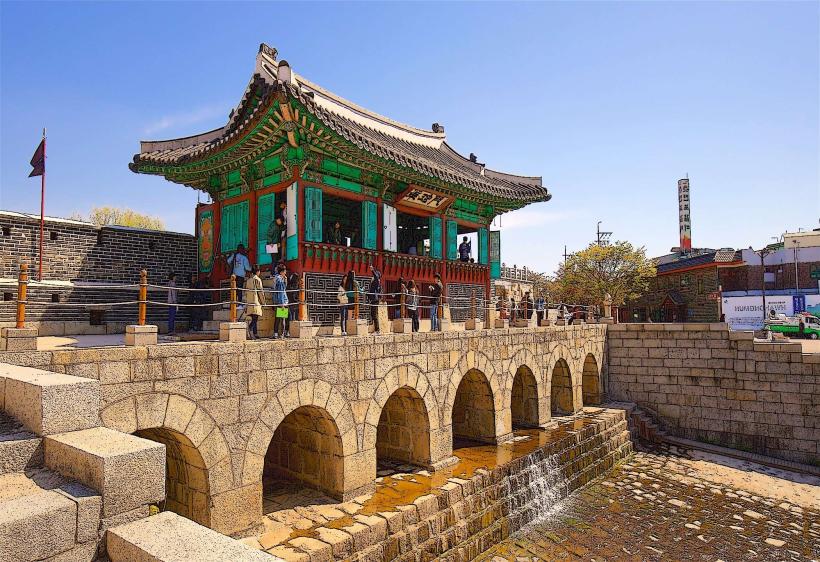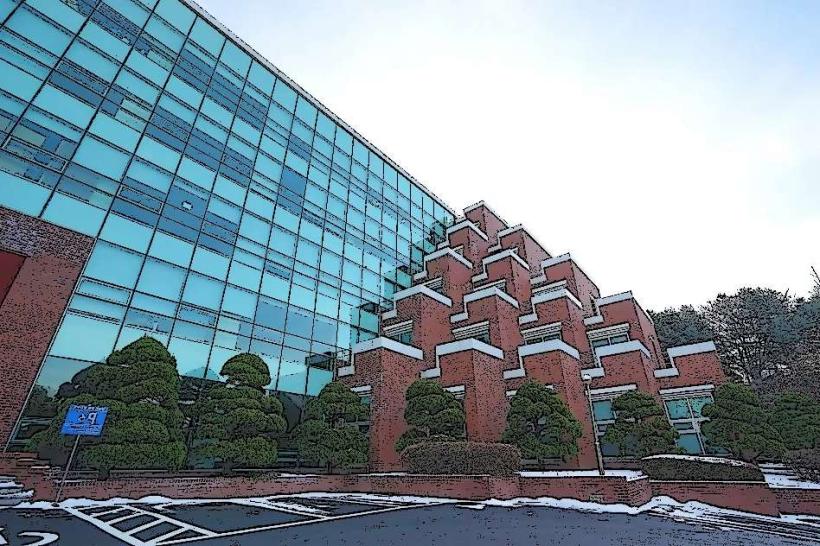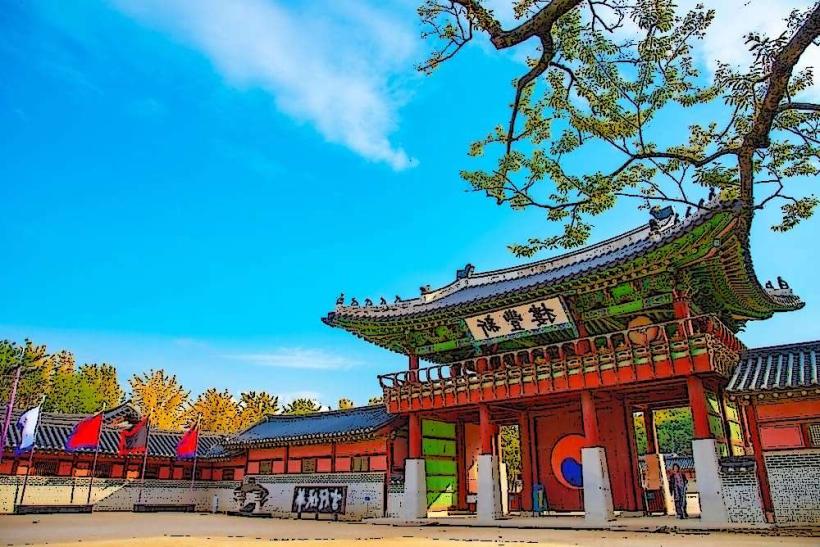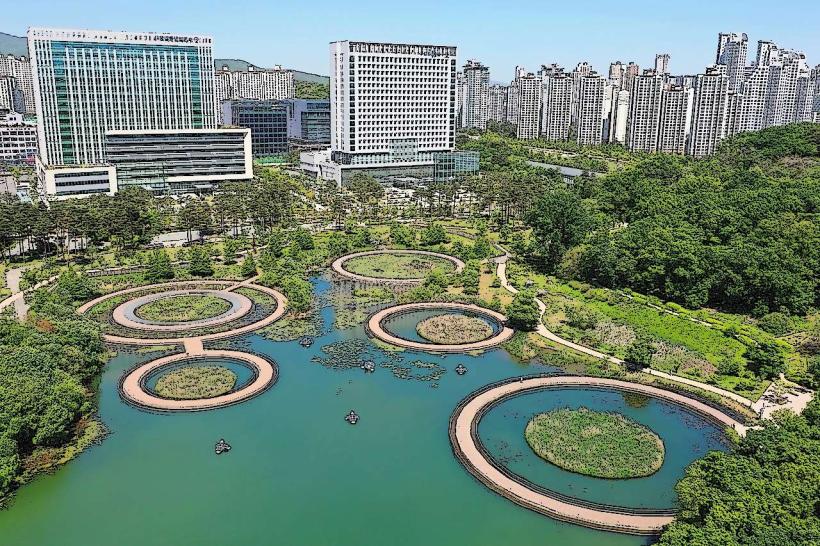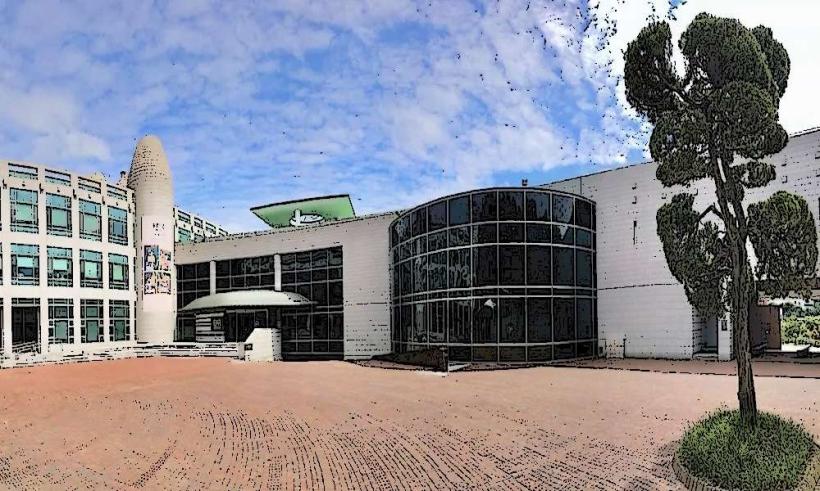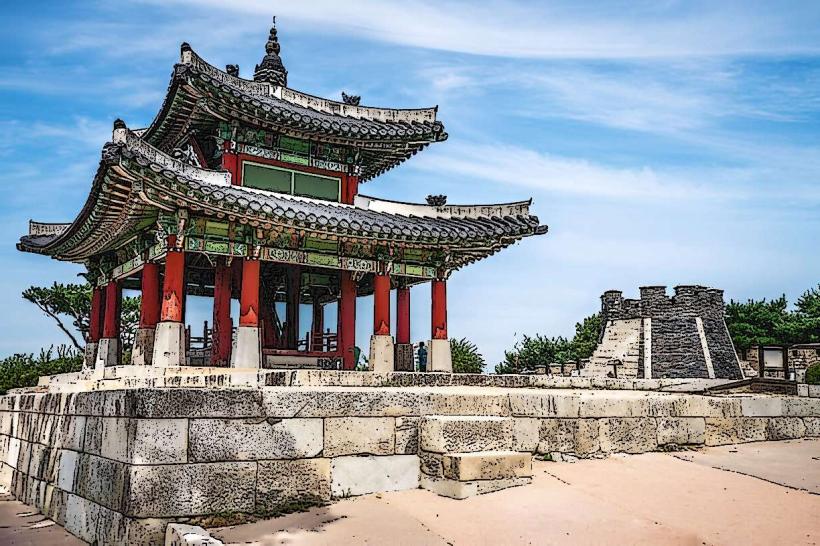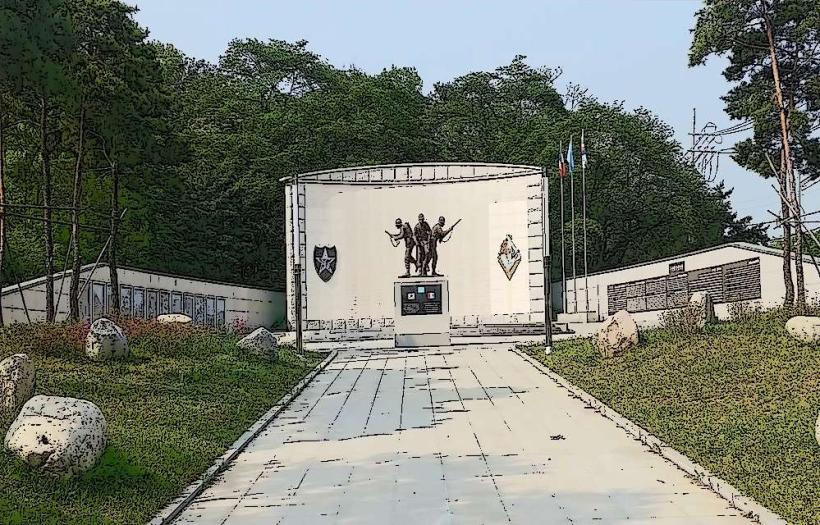Information
Landmark: Jinwi Green Tea MuseumCity: Suwon
Country: South Korea
Continent: Asia
Jinwi Green Tea Museum, Suwon, South Korea, Asia
The Jinwi Green Tea Museum (진위녹차박물관) is a unique and educational museum located in Jinwi, a region of Hwaseong, Gyeonggi Province, South Korea. It is dedicated to showcasing the history, culture, and production of green tea, with a specific focus on the Jinwi area, which is known for its high-quality tea leaves. The museum offers visitors the opportunity to learn about the tea cultivation process, traditional tea ceremonies, and the health benefits of green tea.
Overview of Jinwi Green Tea Museum
Location:
- The Jinwi Green Tea Museum is situated in Jinwi, a region within Hwaseong in Gyeonggi Province. The area is known for its ideal climate and soil for growing high-quality tea, making it a hub for green tea production in South Korea.
- It’s located in a peaceful, rural setting surrounded by lush tea fields, providing a perfect backdrop for learning about the tea-making process.
Establishment:
- The museum was established to preserve and promote the traditional tea culture of the region, particularly the green tea that is cultivated in Jinwi. The museum aims to educate visitors about the historical significance of green tea in Korean culture and its role in the country’s agricultural practices.
Purpose:
- The primary goal of the Jinwi Green Tea Museum is to provide insight into the history and art of tea production in South Korea. The museum offers a comprehensive look at the process of growing, harvesting, and processing green tea leaves, as well as the cultural importance of tea in Korean society.
Exhibits and Attractions
History of Green Tea:
- The museum features exhibits that trace the history of green tea in Korea, from its introduction to the country to its current status as a beloved part of Korean culture. Visitors can learn about how tea was introduced from China and how it evolved in Korean society over the centuries.
Tea Cultivation Process:
- One of the main focuses of the museum is the tea cultivation process. The exhibits highlight the agricultural techniques used in the Jinwi area, where the mountainous terrain, climate, and soil conditions are particularly favorable for producing high-quality green tea.
- The museum explains the various stages of tea production, from planting the tea bushes, harvesting the leaves, processing the leaves, and finally packaging the finished product.
Tea Tasting and Ceremony:
- The museum offers visitors the opportunity to participate in tea tastings. You can taste various types of green tea made from locally grown leaves, learning how the flavors differ depending on the processing method and the tea variety.
- In addition to tea tasting, the museum occasionally hosts traditional Korean tea ceremonies, where visitors can experience the meditative process of tea preparation and serving.
Tea-Related Artifacts:
- The museum also displays a collection of traditional tea-related artifacts, including ceramics, tea sets, and utensils used in the preparation and consumption of tea. These artifacts provide visitors with a glimpse into the cultural practices associated with tea drinking in Korea.
Health Benefits of Green Tea:
- Several exhibits are dedicated to explaining the health benefits of green tea, which has been widely celebrated for its antioxidant properties, boosting metabolism, and improving overall well-being. Visitors can learn how green tea has been a part of traditional Korean medicine and wellness practices.
Tea Gardens and Fields:
- The museum is located near green tea fields, where visitors can see the tea plants up close. Depending on the season, visitors may even have the opportunity to participate in tea-picking activities. The sight of the expansive tea gardens provides a serene and educational environment for those interested in agriculture.
Cultural and Educational Programs
Workshops:
- The museum offers various workshops related to tea cultivation, tea preparation, and tea ceremonies. These workshops are designed for visitors who want to deepen their knowledge of the tea culture and get hands-on experience in making tea or preparing traditional Korean tea sets.
Tea Experience Tours:
- The Jinwi Green Tea Museum offers guided tours that take visitors through the museum’s exhibits and tea fields. The guides provide in-depth explanations of each stage of the tea-making process, from planting to harvesting, and offer insights into the significance of tea in Korean culture.
Traditional Tea Ceremony Experiences:
- One of the highlights of the museum is its traditional tea ceremony experience. Here, visitors can take part in a Korean tea ceremony, where they learn the rituals and customs of preparing and drinking tea in a calm, ceremonial manner. The ceremony is often led by an expert, providing a meaningful cultural experience.
Visiting Jinwi Green Tea Museum
Opening Hours:
- The museum typically operates from 9:00 AM to 6:00 PM. However, hours can vary during holidays or special events, so it’s a good idea to check their official website or contact the museum for specific timings.
Admission:
- The museum generally charges a small admission fee, which grants access to all exhibits and activities, including tea tasting and ceremonies. Discounts may be available for students or groups. Some special programs or workshops may have additional fees.
Transportation:
- The Jinwi Green Tea Museum is accessible by public transportation from Suwon or nearby areas. Visitors can take buses or subways to the closest stations and then use a short taxi ride or local transport to reach the museum.
- Parking is also available for those traveling by car.
Facilities:
- The museum has a gift shop where visitors can purchase a variety of green tea products, including loose-leaf tea, tea bags, and tea-related accessories. You can also find local green tea-based products such as sweets and cosmetics.
- There is also a café where visitors can enjoy a relaxing cup of green tea while enjoying views of the surrounding tea fields.
Conclusion
The Jinwi Green Tea Museum is an excellent destination for tea enthusiasts and anyone interested in learning about Korean culture, agriculture, and the traditions surrounding green tea. Whether you’re interested in the history of tea, the cultivation process, or simply enjoying a traditional tea ceremony, the museum provides an immersive and educational experience. Surrounded by beautiful tea fields, it offers a peaceful retreat where visitors can relax, enjoy high-quality tea, and appreciate the deep cultural significance of green tea in Korea.


